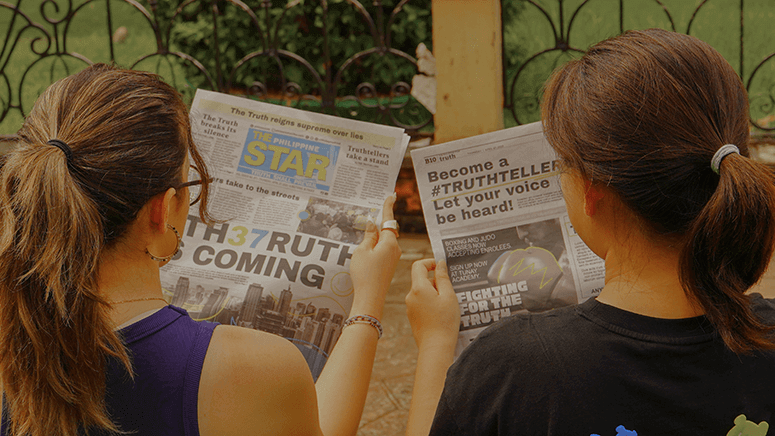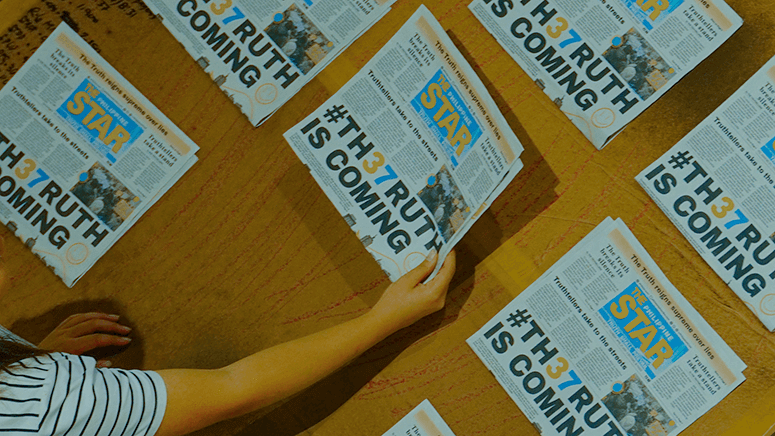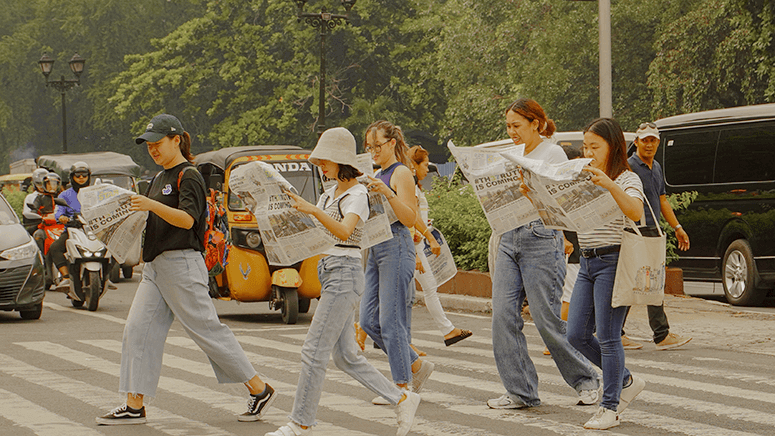The truth about being a truthteller
Filipinos are still grappling with the widespread use of disinformation in the previous elections. Now here comes artificial intelligence, threatening to bring to a higher level the dissemination of inaccurate, deliberately false, malicious, and harmful information.
With the rapid spread of AI, people can even fake celebrity endorsements, make the dead sing duets with the living, and do a better job than Vicki Belo of enhancing physical appearance, at least in cyberspace.
The rapid spread of fake news and altered reality makes the job of journalism even more important.
Digital technology has paved the way for so-called citizen journalism. This is something that has enhanced the environment of news reporting. Social media has been a boon for recording wrongdoing and catching the culprit, such as the security guard who tossed a puppy to its death from a mall footbridge in Quezon City.
At the same time, however, the ubiquity of multiple information platforms has reduced public understanding of the nature of journalism and the role that it plays in society.
Journalism is a profession, and like any specialized field, it requires years of training and experience to practice with efficiency and responsibility.
Like any profession, there are guideposts for practitioners of journalism: accuracy, first of all, and fairness.
In traditional media, malicious reports and commentary are covered by laws that can put offenders in prison for years and warrant millions of pesos in damage payments.

The possibility of a criminal indictment, which can be costly to fend off even if the charge is unwarranted, puts additional pressure on journalists to get the story right.
Getting both sides of a story is not enough; both sides may be wrong, deliberately misleading the public, or obfuscating facts for their own purposes. An inherent task of the journalist is to get the truth out, based not just on he said, she said, but on reliable data-driven analysis and, when possible, investigative efforts.
Truth is an unconditional requirement in journalism. In the age of ChatGPT and the focus on infotainment, truth becomes even more valuable. Democracy, the exercise of civil liberties and good governance, is anchored on the free and responsible dissemination of accurate information and exchange of ideas.
Unlike in much of the stuff on social media, every line in a news report goes through several layers of fact-checking, apart from editing for grammar and the journalistic style of writing. This is true particularly for newspapers, because of the permanent nature of the medium.
It is often said that journalism is history written in a hurry. In any rush, mistakes are inevitable. When these errors are made, it is the journalist’s responsibility to correct them immediately, and occasionally to apologize to anyone offended, even if inadvertently.
Carrying out the journalist’s role in society has become more challenging with the widespread availability of multiple platforms for all types of information.
Understandably, given the nature of the stories that are highlighted in news reports, people are preferring infotainment and the platforms that provide them best such as TikTok.
“Truth is an unconditional requirement in journalism. In the age of ChatGPT and the focus on infotainment, truth becomes even more valuable.”
The latest annual Digital News Report, prepared by the Reuters Institute together with Oxford University, ranked The Philippine STAR alongside two others with the same highest 68 percent trust rating among the daily newspapers in the country. The STAR had the lowest distrust rating, at eight percent; the two others had nine and 11 percent.
The global study showed trust in news steady in the Philippines, but this was pretty low at 38 percent. This diminishing interest and trust in news is a problem in a democracy, where elections are the ultimate expression of the power of the people. Informed choices are needed for elections to play this role effectively. This cannot happen when the information available lacks integrity.
The absence of credible vetting on social media posts has helped encourage the belief that truth can be relative, that if a lie is repeated often enough in a digital conversation thread, it can become truth.

Truthful reporting tends to step on powerful toes, both in government and the private sector. Advertising is a lifeblood of any media enterprise, and it can be weaponized, posing as great a threat to press freedom as public officials with a low tolerance for critical reporting. This threat is particularly strong in a society where politics and private business are locked in an incestuous embrace.
Private business thrives in an open society, and this openness needs an environment where an independent press is free to operate. It is in the interest of private business to support independent media, even when reporting can have an adverse impact on the enterprise. As long as there is no malice in the report, the truth should make any legitimate and competitive business stronger.
Like other rights, press freedom in this country has also been abused. There is a lot of licentious and patently malicious reporting and commentary that have contributed to the erosion of trust in mass media. Survival of the industry will depend on regaining that trust through the responsible, professional exercise of press freedom.
The pressure to regain that trust is greater for newspapers and media organizations whose content is not given away for free. If we want people to pay for content, we cannot afford to dish out garbage.

The crisis in Philippine education has aggravated the problem of discerning fake news from truthful reporting, of identifying disinformation and historical revisionism. Sadly, though not surprisingly in a cash-strapped country, free education has meant substandard education.
It can be tough for the comprehension-challenged to discern fake news and disinformation. Equally challenging is making them care about the failure to tell fake news from truthful reporting.
Dealing with all these problems calls for a multipronged approach, to include not just mass media practitioners but also, among others, educators, the business community, as well as information and communications technology experts.
Truth is becoming a luxury beyond the reach of the majority in this country. Left unchecked, it will have dire consequences for the nation.


